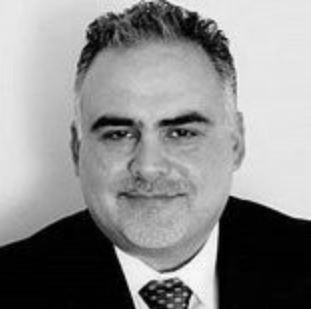By Khatchig Tazian
It is often echoed in conversations, public debates, and social media, the notion of that singular person that would be a game changer. The person who would be the one that saved Armenia, the person who would take the drastic actions “needed” to bring about the change we are looking for. The Person who would organize, reorganize, or disorganize the diaspora for the reason de jour.
It was the case in the early 90’s with the chants on freedom square for “Levon Takavor” to ascend Levon Ter Pertrosyan to power, it was the case in 2018 when Pashinyan the “messiah” of the day came to power, and it was the case during the last years Zartir Lao movement when the masses kept insisting on coalescing around a Pashinyan replacement. The elusive name that never materialized and with it failed (for now) the attempt to dislodge if not treasonous, at least the most inept regime since the re-emergence of Armenia as an independent state.
The situation is not that different in the diaspora. For years the organized diaspora and its institutions have suffered from the same ailments as Armenia. Our people for some reason are more inclined to see solutions in people rather than in processes, institutions, and rules of engagement such as organizational bylaws that are much more inclined to endure the test of time over individuals no matter their level of genius, capabilities, or commitment to whatever cause, or organization that might be at stake.
To say that this is a function of education may be partially true, the other reason of course is our culture and “political existence”. The great majority of our people in the last hundred-plus years have either lived in the authoritarian regimes of Soviet and post-Soviet Armenia or the Middle East where this phenomenon is rampant.
Many well-meaning people with the best of intentions have fallen for “the shortcut for now until we fix the bigger issues” mentality. They see the election, or promotion of a person as a stop-gap measure until the bigger issues are solved. The truth is, however, once down that rabbit hole the “shortcut” becomes the go-to “fix” and the “fix” becomes the norm hence the phenomenon of “indispensable leaders” who must stay at the helm for stability to reign, or for progress to be made.
We’ve seen this in Armenia where regime after regime failed to institutionalize Democracy. A democratic system that went beyond holding at best, semi-fair, and semi-free elections. A system where the constitution and rule of law reigned supreme. A system that promoted freedom of the press, and a fair and independent judiciary. A system that promoted quality and fairness in education, commerce, politics, and governance. While the preceding is true of the regimes in Amenia, the diaspora has its own parallels in corruption, nepotism, the concentration of power, and the overall shift away from democratic values and commensurate best practices. It is a phenomenon most apparent in recent times in the institutions that make up the largest and most influential institutions of the diaspora in some of the most influential centers of power and relevance to Armenia, and the Armenian Nation in general.
The “indispensable leaders” that for so long have held the levers of the institutions they’ve controlled have more and more used the same for their own self-promotion, economic self-interest, and the extension of their “reign” to the detriment of the organizations they serve, and by extension the community and the cause which they purport to propagate. This type of behavior inevitably leads to the distancing of the youth and new generation of leaders from the institutions that are so vital for the longevity of our communities, and the leverage they constitute for Armenia proper.
The solution to many of the problems that plague both Armenia and the Diaspora starts with us as individuals. In these trying times where division in Armenia and the Diaspora has become so rampant, it is incumbent on all of us to stand with the values that will outlive the times we are encountering, and the crises we seem to be faced with at every level. The choice may be hard at times given the lines of the divisions we are living are so blurred by lifelong friendships, familial ties, economic interests, political and organizational positions, and a whole slew of other reasons. Yet, the choice is clear. The law, the institution, and the organization MUST survive for the rest to have a chance. This is akin to an officer having to arrest his best friend for a crime. To look the other way would make him/her an accomplice. By not standing for what is right, we make ourselves accomplices to the problem.
Doing the right thing is never wrong
If we want to see change
If we want to see progress
If we want to see transparency
If we want to see accountability
If we want to see unity
If want to see a strong community
If we want to see a strong Armenia…. We need to be the agents of the change we want to see.
Unfortunately, there just are no shortcuts in life.




